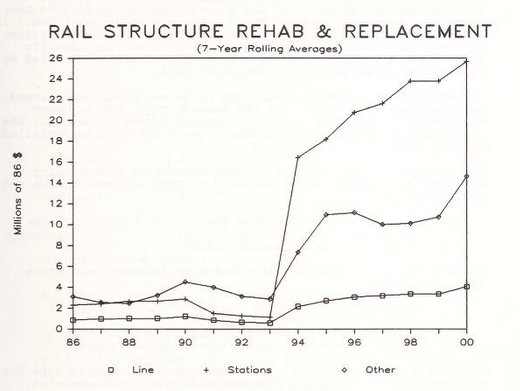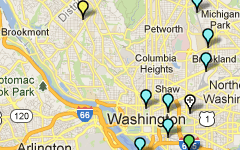Studies on Dedicated Funding for Metro – If We Had a Nickel…
The region has entered its 30th year of discussion about funding Metro.
There has been a lot of talk recently and even more sound bites about the need for more consistent, reliable, and dedicated funding for Metro. But while it may seem like an innovative topic, discussions about Metro’s funding challenges and the need for a dedicated funding stream for Metro have been going on for … decades. This has been an identified problem and heavily-studied topic since at least 1986 – the year the Oprah Winfrey Show debuted, Top Gun was the highest grossing film, and Ferris Bueller took a day off.
Truth be told, scores of very smart people have expended time and effort and resources to articulate the problems, accurately predict the consequences of inaction, and suggest solutions suitable (and necessary) for implementation. So when you read “news” about Metro’s funding challenges, the problems it creates, and potential fixes – remember that what you are reading is hardly “new”. And no refrain is older than the “it’s not the right time”, to which we must remind the reader that for three decades, it hasn’t been “the right time”. How’s that working out, anyway?
Below are a few of the studies and reports generated on Metro’s funding challenges and possible solutions to closing the funding gap:
- In 1986, while we were still building the Orange Line to Vienna, the Federal City Council completed a study that raised concerns about long-term maintenance costs of Metro, the impacts on the jurisdictions, and the tradeoffs between building out the Adopted Regional System and investing in maintenance. (WAMU’s Metropocalypse’s Podcast, Episode 5 provides a short summary on the importance of 1986 and this report, starting at 8:20.)
- In 2004, the year Metro Matters (pdf), a $3.3B funding agreement to address capital needs, was approved, the Brookings Institution authored Deficits by Design, which called attention to the annual funding crises brought about by its “problematic revenue base.”
- In 2005, the Metropolitan Washington Council of Governments, Federal City Council, and Greater Washington Board of Trade published the findings of the Metro Funding Panel, which recommended a Compact-wide increase in the sales tax of one half of one percent (0.50%).
- The Great Society Subway, published in 2006, outlines how Metro came to be and specifically speaks to the financial elements in Chapter 7. (Its author, Zachary Schrag, was interviewed in the Washingtonian in April 2016 and touches on dedicated funding as well.)
- In 2006, Metro’s 30th anniversary, the federal government followed the trend and commissioned a study by the General Accountability Office to understand the issues with providing a dedicated funding sources locally.
- In 2016, Metro’s 40th anniversary, the Metropolitan Washington Council of Governments (COG) and the Greater Washington Board of Trade (BOT) convene a set of meetings (“summits”) to discuss the future of Metro with a major focus on governance and funding.
Studying – check. So now what? Read more…



Recent Comments